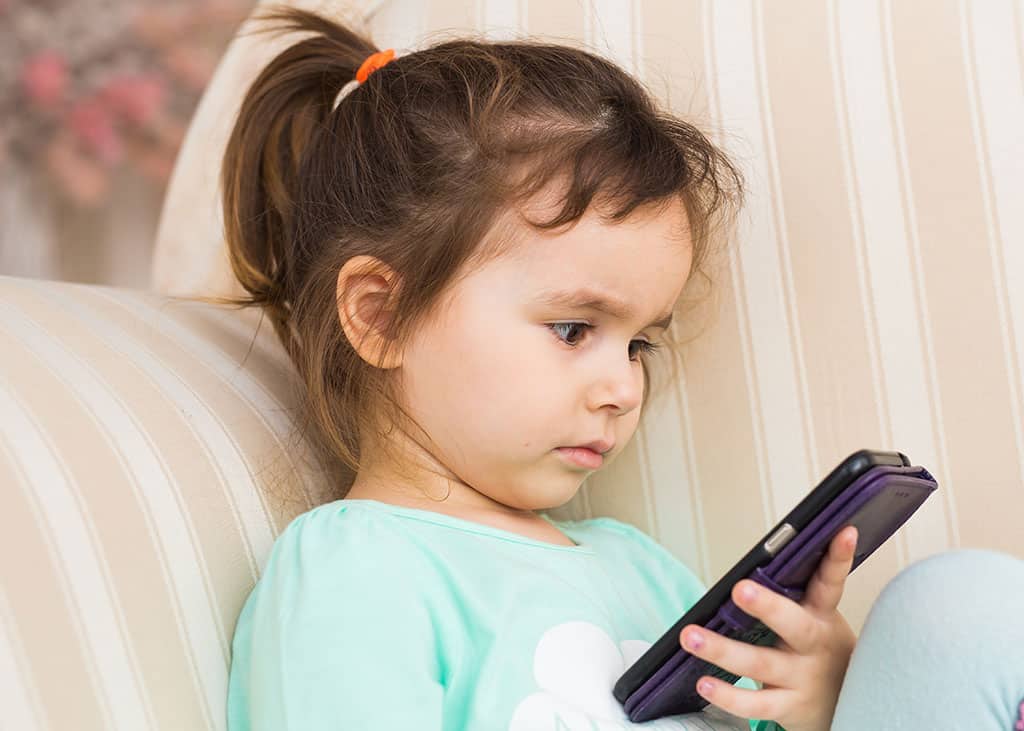Why Is It Important To Reduce Screen Time Among Kids?

We often hand out gadgets and devices to our children when we wish to be left alone or when we want to accomplish any task at our hand without being interrupted. This promotion of screen time slowly turns into an addiction which hinders your child’s physical as well as psychological development.
Let’s check out why is it necessary to cut down on screen time for the better future of today’s generation.
- Poor Physical Health
When physical activities are replaced by screen time, physical development of the kid takes the hit. Staying glued to the screens can lead to weight gain, and exposure to blue light emitted by devices can disrupt the sleep-wake cycles. Physical exercises and games, on the other hand, improve blood flow, boost the appetite, and induce sound sleep. - Less Sensory Stimulation
Infants and toddlers learn from their environment. Their interaction with surrounding objects and family members is essential for their growth. These early experiences are necessary as this is the time when their brain size and functioning capabilities develop. When toddlers o kids are exposed to tv’s, computers, and tablets, they are in a passive state of mind, which makes them sensory-deprived. In short, their brain development is significantly limited when compared to those who operate in a real-time environment. - Lack of Communication and Social Skills
Study at the Hospital for Sick Children, Canada concluded that toddlers and kids who were permitted with more screen time exhibited slow development in learning words and sentences when compared to other kids. The cause for poor communication or social skills is passive participation of kids while images and information are being implanted in their minds. This ‘viewer passivity’ inhibits their natural ability to communicate and socialize. - Decreased Attention Span
Traditional cartoon programs had one single cut for every ten seconds. Today’s fast-paced media, on the other hand, consists of 8-10 cuts for each second due to time restrictions. The rapidly changing images that are streamed continuously fracture your attention and accelerates the time. When children get addicted to this type of online content, they find daily life experiences such as teacher discussing maths problems at the schools, dull and boring. - Childhood Hyperactivity
According to Dr. Paul Thomas of the American Academy of Paediatrics, children should be open to a variety of content for proper development. It is necessary that parents participate in the choice of material as most of the cartoons or games showcase violence. Such projection of violence stimulates flight or fight responses which are suppressed by the children. But when screens go off, these suppressed emotions burst out in the form of aggressive or anti-social behavior. This type of frantic behavior is the result of childhood hyperactivity. Studies show that such type of content can increase the risk of behavioral and attention problems in children by 110%. - Processing Non-Verbal Cues
Processing non-verbal cues such as a change in tone or signals sent through eye contact can become difficult for those who spend long hours in front of screens. For such individuals making friends and communicating or expressing emotions can be problematic. Lack of understanding of non-verbal cues can also lead to awkward situations. With poor communication skills, one may also miss out on exciting opportunities that can be beneficial for overall career growth and development. - Depression
Most of the social media channels, including television programs, showcase unrealistic ideas, and lifestyle. Comparison of real life with such unrealistic and fabricated lives can have a negative impact on the mind of viewers. Staying away from real life and associating oneself with reel life can lead to loneliness and depression.
Have you read?
# How To Plan Corporate Business Travel.
# 5 Things to Keep in Mind While Taking a Year Drop for Higher Education.
# 5 Things to Know About Manicure.
# 6 Amazing Facts About Akihabara, Japan You Should Know.
Bring the best of the CEOWORLD magazine's global journalism to audiences in the United States and around the world. - Add CEOWORLD magazine to your Google News feed.
Follow CEOWORLD magazine headlines on: Google News, LinkedIn, Twitter, and Facebook.
Copyright 2025 The CEOWORLD magazine. All rights reserved. This material (and any extract from it) must not be copied, redistributed or placed on any website, without CEOWORLD magazine' prior written consent. For media queries, please contact: info@ceoworld.biz








